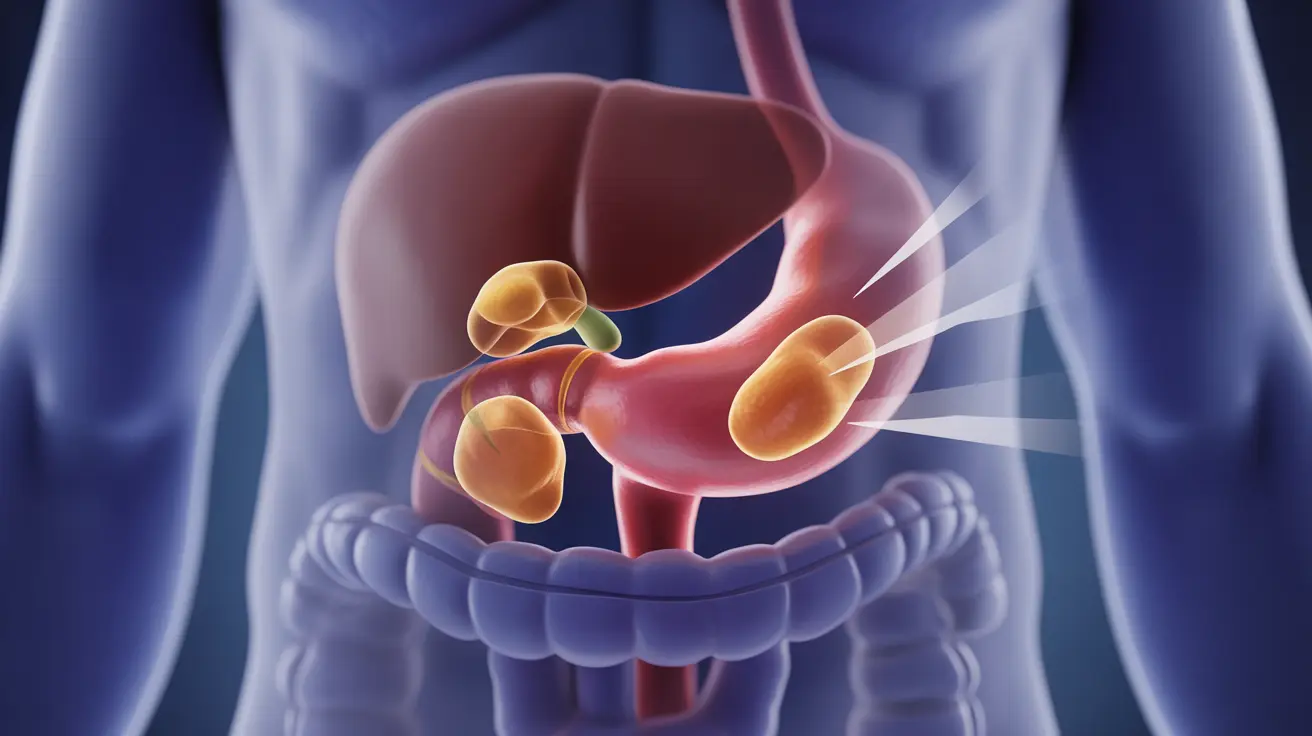Living with a hernia can significantly impact your daily comfort and well-being, particularly when it comes to digestive symptoms and weight-related concerns. Many people experience bloating and changes in weight in connection with their hernia, making it essential to understand the relationship between these conditions and how they affect each other.
In this comprehensive guide, we'll explore the complex relationship between hernias, bloating, and weight changes, helping you better understand your symptoms and manage your condition effectively.
Types of Hernias and Their Impact on Digestion
Different types of hernias can affect your digestive system in various ways. The most common types include:
- Hiatal hernias: Occur when part of the stomach pushes through the diaphragm
- Inguinal hernias: Develop in the groin area
- Umbilical hernias: Form around the belly button
- Ventral hernias: Appear in the abdominal wall
Each type can cause unique digestive symptoms and complications, particularly when it comes to bloating and discomfort.
The Connection Between Hernias and Bloating
Hernias can indeed cause significant bloating and gastrointestinal discomfort. This occurs because the hernia can interfere with normal digestive processes in several ways:
- Disruption of normal digestive tract alignment
- Interference with proper food passage
- Trapped gas and digestive contents
- Inflammation in the affected area
When these issues occur, they can lead to chronic bloating, discomfort, and related digestive symptoms.
Weight Gain and Hernia Development
The relationship between weight gain and hernias is bidirectional. Excess weight can put additional pressure on weak spots in the abdominal wall, potentially leading to hernia development or worsening existing hernias. Conversely, having a hernia might affect your ability to maintain a healthy weight due to:
- Limited physical activity due to discomfort
- Changes in eating habits
- Digestive complications
- Reduced mobility
Managing Hernia-Related Symptoms
Dietary Modifications
Making smart dietary choices can help manage both bloating and weight-related concerns:
- Eating smaller, more frequent meals
- Avoiding trigger foods that cause bloating
- Maintaining proper hydration
- Including fiber-rich foods in moderation
Physical Activity Considerations
Exercise can be beneficial but should be approached carefully:
- Focus on low-impact activities
- Avoid heavy lifting
- Include gentle core-strengthening exercises
- Work with a healthcare provider to develop a safe routine
Frequently Asked Questions
Can a hernia cause bloating and discomfort in the abdomen?
Yes, hernias can cause significant bloating and abdominal discomfort. This occurs when the hernia interferes with normal digestive processes and can trap gas or other contents, leading to bloating, pressure, and pain in the affected area.
How does weight gain affect the development or worsening of a hernia?
Weight gain can significantly impact hernia development and progression by increasing pressure on the abdominal wall. Extra weight puts additional strain on existing weak spots, potentially causing new hernias or making existing ones worse.
What are the common symptoms of different types of hernias, such as abdominal and hiatal hernias?
Common symptoms include visible bulges, pain or discomfort, bloating, acid reflux (especially with hiatal hernias), and difficulty with certain movements. Symptoms can vary depending on the hernia type and location.
Can a hernia exacerbate digestive issues like heartburn or acid reflux?
Yes, particularly in the case of hiatal hernias, which can significantly worsen acid reflux and heartburn by affecting the function of the lower esophageal sphincter and allowing stomach acid to flow back into the esophagus.
How can lifestyle changes, such as diet and exercise, help prevent or manage hernia symptoms?
Lifestyle modifications can help manage hernia symptoms through maintaining a healthy weight, eating smaller meals, avoiding trigger foods, and engaging in appropriate exercise. These changes can reduce pressure on the hernia and minimize discomfort, though they won't cure the hernia itself.




